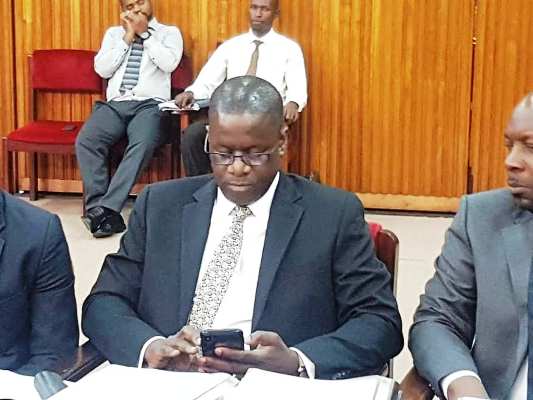Uganda Vision 2020 projects a middle income country driven by industrialization supported by trade through export promotion and import substitution.
In Uganda’s production sectors, the significance of women in trade to the economy according to women traders is still low due to the high dominance of men in major economic activities.
The women traders’ leaders have consented that for trade especially by women traders to contribute heavily to the growth of the economy, there are many barriers that have to be dealt with.
The Vice Chairperson of Kampala Capital City Traders Association (KACITA) Hope Katwine urged stakeholders to spearhead the formation of a policy to regulate commodity distribution chain from manufactures to the final consumer.
Katwine says that there is a challenge with the current distribution chain where manufacturers are equally distributing goods to wholesalers, distributors and retailers, which she says is increasing the cost of doing business and reducing return on investment.
“There is need for a policy on commodity distribution chain that can help on the delivery of commodities from factory to wholesalers and retailers. This will reduce the cost of doing business and maintain low prices to the final consumers,” she said.
She made the remarks during the 3rd Annual Women conference organised by Uganda Revenue Authority (URA) yesterday at Hotel Africana .
She adds that despite the Buy Uganda Build Uganda (BUBU) policy, there is limited access to regional markets around Uganda partly because of standards and other trade barriers in the market which she says is affecting value addition.
She advised women traders to utilise the existing IT channels especially online trading mechanisms to import commodities to reduce on the cost of importation and delay in dispatching good to their destination.
“Women can book online without going to China. We need to train women traders to embrace online trading to prevent many challenges involved,” she said.
Irene Irumba, a Compliance Officer at URA urged traders to ensure their tax obligations are met especially paying taxes, filling returns, among other through URA offices of assessment, refunds, liaison, and objection offices among other offices to avoid interference in business transactions
She says that URA has innovated different initiatives aimed at easing trading including digital trucking solutions (digital stamps), e-tax 2, online documentation among others which she says will enhance quality of goods, quicken transactions, and simplify registration, filling returns and others.
By Drake Nyamugabwa





